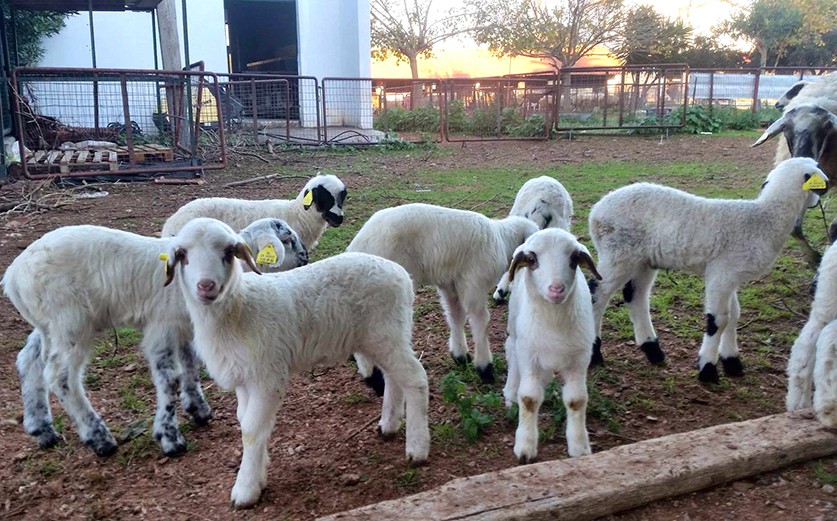Thessaloniki, Greece – This year, the program “Sheep and Goat: Enhancing Dairy and Meat Sector” at the American Farm School (AFS), a part of the “New Agriculture for a New Generation” (NANG) program, will collaborate with the Alternative Tourism program at AFS to promote the city of Xanthi in a three-day international conference, 7-9 June, celebrating the Belle Epoque era of Xanthi and its long-forgotten breed of shorthorn cattle.
Xanthi and the Rhodope Mountains are home to the Greek shorthorn cattle, the only indigenous breed left in Greece. “We’re trying to see what we can do to save this special breed,” said Vicky Krystallidou, project leader for the Sheep and Goat program. “If we lose it, we won’t have any more. All the other breeds are imported from Europe.” Only 600-700 of the cattle remain, grazing freely in the mountains between Xanthi and Komotini. “We hope to certify the breed, giving farmers an opportunity to sell it at a higher price,” Vicky said. “If they are paid more, they will have a reason to protect it. We’ve done this before, with the Dexter breed of cattle in the UK.” The shorthorn cattle doesn’t produce much milk, but the program has partnered with Brigade, an association of chefs, who will come to Xanthi to make recipes from the meat. “They say it really does taste better,” Vicky said. “And since the breed is from Pomakohoria, we’ll also have an opportunity to work with the Pomaks, Greek Muslims who live in villages in the Rhodope Mountains, and highlight their culture and their involvement in cattle rearing.”
The Sheep and Goat program has a number of other exciting initiatives. Vicky visits farms in 15 regions throughout Northern Greece, from Ioannina to Orestiada and down to Karditsa. Each region has about eight farmers whose farms she visits two to three times per month. She examines each farmer’s animals and gives them advice about reproduction, nutrition, and disease in order to help them enhance their products. She also works with them to set individual goals. “The social dynamics of every group are different,” she said.
Vicky also works with food scientists, butchers, cheese makers, and chefs to develop new products from goat milk. “Greece ranks the first in goat production, but we don’t have a unique goat cheese,” she said. In collaboration with Efi Koutsomitropoulou at Creta Farms’ new research and development initiative New Milk and Professor Thomas Moschakis from the Department of Food Science at Aristotle University, she produced a new drink made from fermented goat-milk yogurt which is available in plain, strawberry, and fig flavors. Next year, Vicky aims to produce a spreadable cheese from goat milk, and the following year, a hard yellow goat milk cheese.
In addition, Vicky is working with the Hellenic Agricultural Organization DIMITRA (ELGO DIMITRA) to research the feasibility of producing heavyweight lambs. Lambs in Greece are usually slaughtered for Easter feasts at 12 kilos, while heavyweight lambs are slaughtered at 18-20 kilos. “Although Greece ranks third in sheep production in Europe, we import much of our meat from New Zealand and Australia,” she said. “There is an opportunity here, but farmers don’t know it. By encouraging farmers to shift to heavyweight lamb production, we can reduce our dependence on imports from other countries.” Vicky is running a number of experiments with ELGO DIMITRA to compare the shorthorn cattle with indigenous breeds from Florina and Chios and a number of imported breeds. “We are performing sensory analyses, measuring the distribution of fat, the differences in the meats. We are also monitoring the cost of raising the animals based on age and weight,” Vicky said. “If farmers raise the animals for a longer period of time, they must know that they will profit.”

